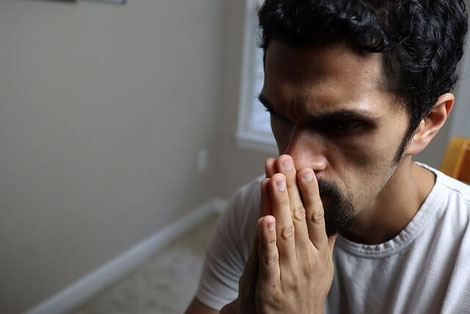2024 · 30. May 2024
People with OCD can be ashamed of unwanted intrusive thoughts. However, OCD isn't characterised by the presence of intrusive thoughts; it is characterised by how you react to the thoughts. My latest column looks at the large body of research showing that pretty much everyone has experienced intrusive thoughts. The reality is there is no difference between the thoughts of a person with OCD and a person without OCD; the difference is in the way people react.
2024 · 22. February 2024
World-renowned CBT researcher and OCD expert Prof. Paul Salkovskis once asked therapists attending an OCD workshop to write down: ‘Today my partner (or best friend) will die in a car crash’. Only one third did this – the others changed the wording or said they were unable to do so. Clearly, many of us are prone to superstitious, magical thinking. My latest column explores the issue of thought-action fusion and details some simple exercises to test the power (or lack of power) of your thoughts.
2023 · 16. November 2023
Anxiety is a universal human experience, a natural response to stressors and challenges we all encounter in life. While it's a common emotion, it's often misunderstood and can manifest in a variety of ways. My latest Southern Star column explores some important things you should know about anxiety.
2023 · 05. October 2023
Many of us find ourselves occasionally grappling with concerns about our health. Yet, for some, this unease goes beyond sporadic worry; it is a constant, exaggerated fear centred on health. My latest article looks at the obsessive and distressing nature of health anxiety, and talks about how the very things you do to ease your health anxiety - the rumination, the checking, the reassurance-seeking – are the very things keeping you stuck.
2023 · 29. June 2023
Does the word self-compassion make you cringe? To many, it sounds a bit icky, touchy-feely, self-indulgent. However, it’s none of these things. In fact, many people find practising self-compassion to be very hard work. My latest column explains why it's important to make the effort and to treat yourself as you would treat a friend.
2022 · 16. December 2022
Treating anxiety can be reduced to one simple principle: ‘Anxiety is maintained by avoidance, and willing exposure is the active ingredient of recovery. That is essential; all the rest is commentary.’ My latest Southern Star column explores why tackling anxiety means tackling avoidance.
2022 · 01. December 2022
Tackling anxiety means choosing to do some hard things, such as facing feared situations, so you have to be motivated. To get motivated, ask yourself this: what have you lost to anxiety? My latest column looks at some ideas from anxiety expert Dr Jonathan Grayson on how to undertake this vital exercise.
2022 · 02. June 2022
Do you operate on a double standard in your daily life? That is, are you supportive and generous towards other people but often harsh and self-critical towards yourself? My latest columns looks at the double-standard technique, a simple but powerful cognitive therapy strategy which is especially useful if you have perfectionist tendencies or are prone to self-criticism.
2021 · 21. October 2021
The best way of overcoming your fears is to confront them. Exposure therapy – exposure and response prevention or ERP, to use the proper name – is a proven psychological treatment for all forms of anxiety, but how exactly does it work?




